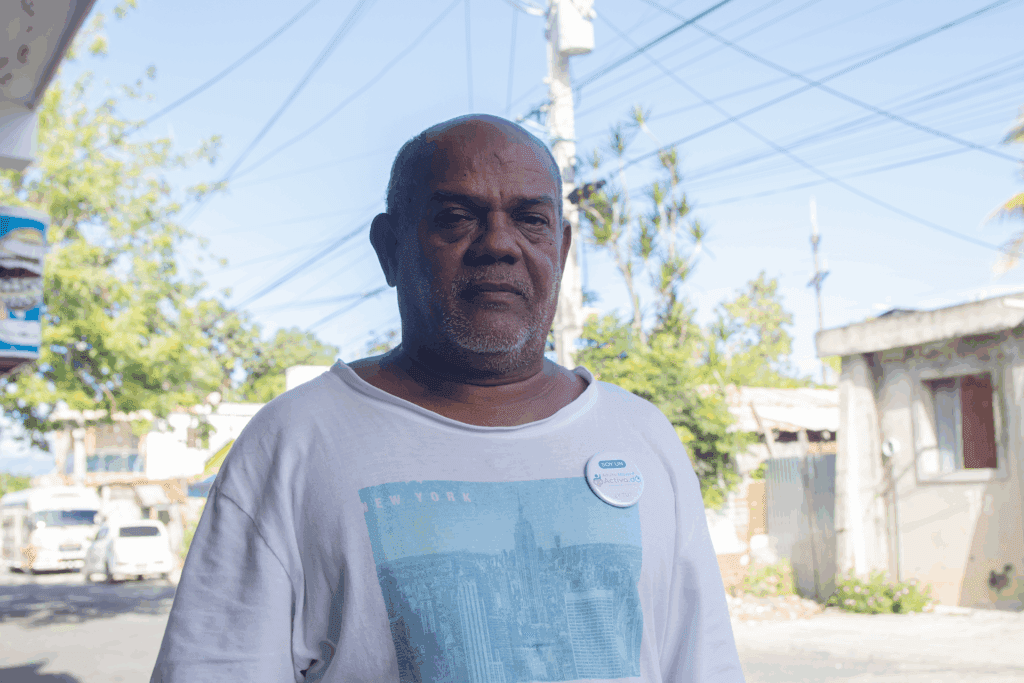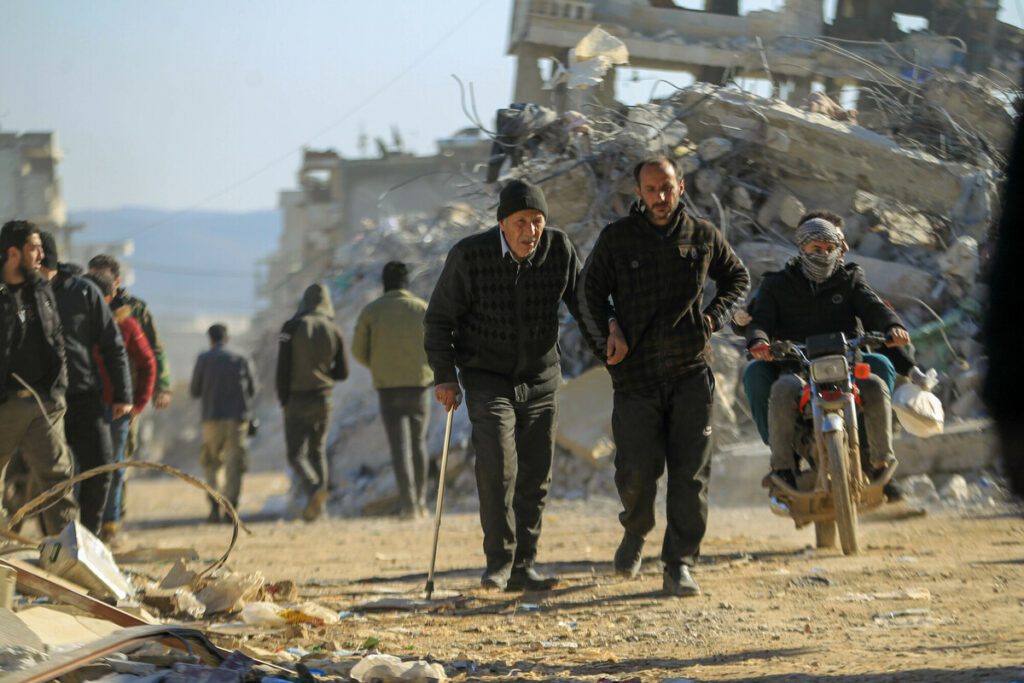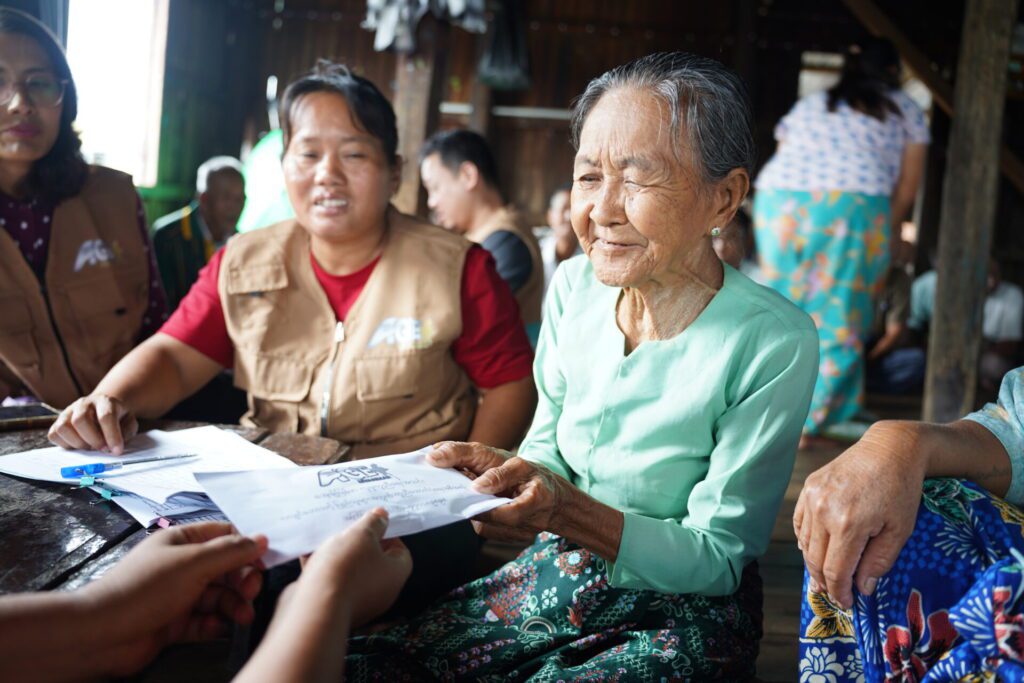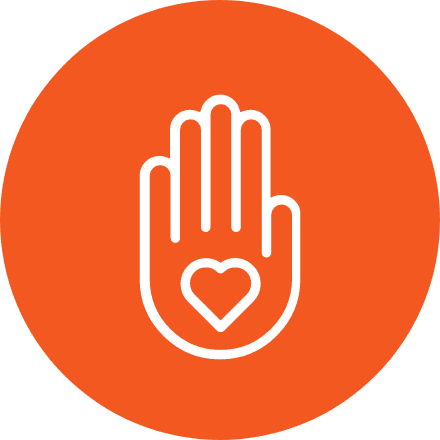Conflicts and Disasters
Humanitarian crises disproportionately affect older people — yet they are often overlooked.
During conflicts and emergencies, communities and essential systems collapse. Older people are among the most affected, but also the most invisible. Despite global commitments to inclusive humanitarian action, older people are often left out of planning, data collection, and decision-making, leading to major gaps in assistance and protection.
The number of older people impacted by humanitarian crises is rapidly increasing. In low- and middle-income countries, where conflict and disasters can have the most severe impacts, the proportion of people aged 50 and over is expected to double by 2050.
An urgent shift is needed. Older people must be heard, counted, and supported in ways that respect their dignity, contributions, and rights.
Learn More
Promoting and Strengthening Older Age Inclusion in Humanitarian Action
If Not Now, When?
Out of Sight, Out of Mind
Funding for Older People in Humanitarian Crises
I Go to Sleep on an Empty Stomach
Where We Work
Through our global network, we work with international and local partners from more than 199 organizations in 98 countries. HelpAge USA supports older people in crises and conflicts around the world, including:
Older People in Emergencies
Older people often face barriers to disaster assistance due to “one-size-fits-all” approaches. Common barriers include:
- Lack of food assistance: Centralized food distribution points may be inaccessible for older people with disabilities or those living in remote areas, and food kits often do not meet older people’s nutritional requirements.
- Inaccessible services: Humanitarian assistance such as evacuations, shelters, water supplies, toilets, and health centers are rarely accessible.
- Isolation: Older people who cannot or do not flee during emergencies often remain behind alone, separated from their families and community support.
- Health risks: Chronic conditions that are more common in older people, such as diabetes, hypertension, or dementia, can become life-threatening when medicine, healthcare, or support services are unavailable.
- Economic exclusion: Livelihood and microcredit programs often overlook older people, leaving them without ways to rebuild their income.
The risks for older people are clear. HelpAge is stepping up to make sure disaster response works for everyone, no matter how old they are.
Our Approach
As part of the HelpAge global network, we actively support a global movement for change to ensure that older people can access humanitarian aid safely, equitably, and with dignity, and are active participants in response and recovery efforts.
Our localization strategy allows us to deliver support through our global network partners and organizations who are embedded in communities, enabling faster mobilization, stronger trust, and services shaped by the experiences of older people.
This includes:
– Coordinating with partners to provide essential services such as healthcare, nutrition, and protection
– Providing wheelchairs, walkers, and hygiene products essential for older people’s dignity
– Delivering mobile health clinics and training older people to provide home-based support and services to more isolated peers
– Offering Community Safe Spaces for older people to come together to rebuild and advocate on issues that matter most to them
– Sharing our unique expertise on the rights of older people and inclusive humanitarian response with policymakers and
humanitarian responders
– Ensuring that older people are counted in data collection and that their perspectives inform decision-making
– Advocating with national and international stakeholders to advance equitable humanitarian action inclusive of older people
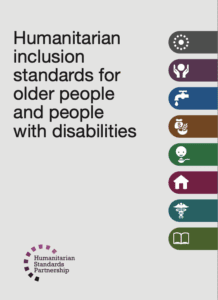
Humanitarian Inclusion Standards for Older People and People with Disabilities
To drive practical change in disaster response, HelpAge helped develop the Humanitarian Inclusion Standards for Older People and People with Disabilities.
Read more to find guidance across all areas and at all stages of emergency response to ensure older people and people with disabilities are not left out.

